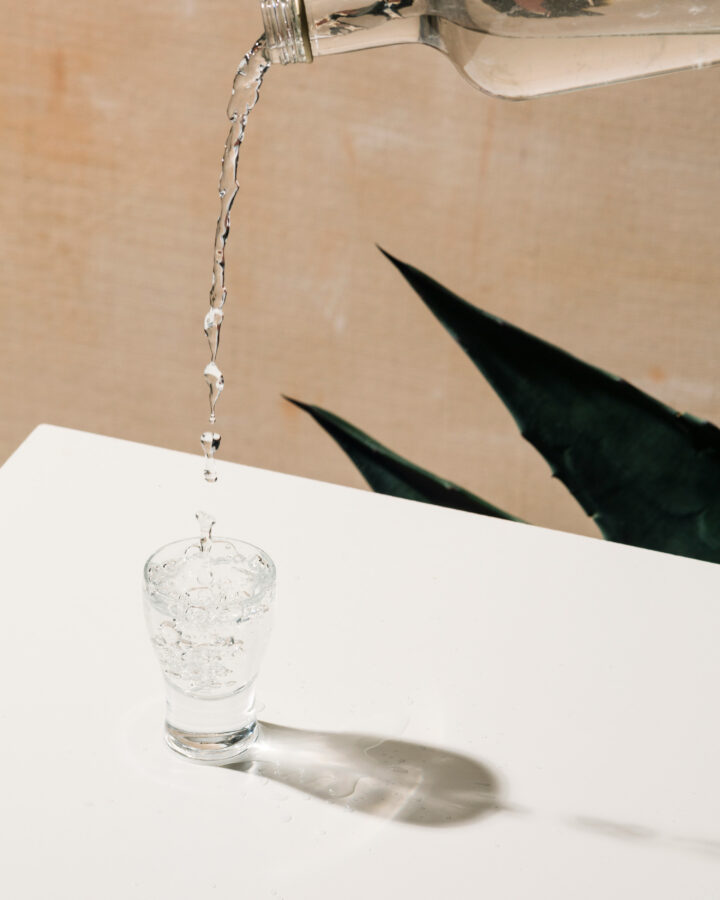Feeling Stressed? You Might Just Be Dehydrated

New research links low water intake to exaggerated [kawr-tuh-sawl]nounA hormone that helps manage stress, energy, and alertness.Learn More spikes and long-term health risks
I’ll admit it. I’m one of those people who will make sure everyone else has what they need, then look up halfway through the afternoon and realize I’ve barely had a glass of water. Coffee? Yes. Water? Maybe a few sips. And that’s usually the moment when the smallest task feels overwhelming.
Turns out, there’s a reason for that. A new study shows that when you’re not drinking enough, your stress system can go into overdrive, flooding your body with stress hormones.
What Happens to Cortisol When You’re Dehydrated?
Researchers from Liverpool John Moores University compared two groups of healthy adults. One group drank very little each day, about 44 ounces (just over 5 cups, or 5-6 glasses). The other group drank much more, about 149 ounces (around 18 cups, or 12-15 glasses).
That higher amount is above what most people need. The researchers used it as a way to compare extremes, not as a target to hit.
Both groups were put through a standard stress test, a kind of mock job interview combined with mental math. Everyone’s heart rate climbed. Everyone felt nervous. But here’s the difference: only the low-intake group had a strong spike in cortisol, the hormone that drives the body’s stress response. Their levels stayed high even after the test ended.
The high-intake group? Their cortisol barely budged.
The researchers also checked hydration in a simple way, by looking at urine color. Darker urine (a 4 or higher on an 8-point chart) went hand in hand with larger cortisol surges.
Why Chronic Cortisol Spikes Increase Disease Risk
“Cortisol is the body’s primary stress hormone and exaggerated cortisol reactivity to stress is associated with an increased risk of [hahrt dih-zeez]nounConditions affecting heart health and circulation.Learn More, diabetes, and depression,” says lead study author physiologist Neil Walsh. Cortisol isn’t bad in short bursts. It helps you focus, rally energy, and push through challenges. But when cortisol spikes often and lingers, it wears the body down. Over time, that can mean more [in-fluh-mey-shuhn]nounYour body’s response to an illness, injury or something that doesn’t belong in your body (like germs or toxic chemicals).Learn More, lower immunity, and higher risk for diseases and metabolic issues.
This study adds to the growing evidence that staying hydrated is about more than avoiding headaches. It may also be a way to keep your stress response in check.
How Much Water Do You Really Need Each Day?
Most health guidelines recommend about 85 ounces (10-11 cups, or 7-9 glasses) a day for men and 68 ounces (8-9 cups, or 6-8 glasses) a day for women. That includes both drinks and the water found naturally in food. Somewhere between 1.8L and 3.7L (that’s eight to 15 cups a day) seems to be associated with positive metabolic and functional outcomes.
In the end, the best advice is to listen to your body. If you’re thirsty, drink. If you’re not thirsty, sip on water throughout the day, getting a little here and there to keep your fluid stores topped off.
You don’t need to drink 12-15 glasses like the high-intake group in the study. The key takeaway is this: don’t consistently underhydrate.
7 Easy Ways to Stay Hydrated Every Day
We all know we need to drink water but, it’s also the easiest thing to forget some days. Here are a few practical ways to make it stick:
- Front-load. Start your day with a full glass of water before your morning coffee.
- Spread it out. Sip steadily instead of cramming it in late in the day.
- Anchor to habits. Link a glass of water to things you already do, like before brushing teeth, or when you open your first email, or after a meeting, or sitting down to watch a show.
- Mix it up. Plain water is best, but tea, sparkling water, and water-rich foods like melon or cucumbers count too.
- Replace what you lose. After exercise, hot days, or sauna time, add electrolytes through food (bananas, tomatoes, broth) or a low-sugar mix.
- Prep for high-stress moments: “If you know you have a looming deadline or a speech to make, keeping a water bottle close could be a good habit with potential benefits for your long-term health,” say study authors.
- Do a pee check. Pale yellow urine is a good sign. Darker yellow means you probably need more water.
Stress isn’t going away. But if something as simple as drinking enough water can help the body handle it better, it’s worth paying attention. Think of hydration as a daily practice. One that makes you steadier in the moment and stronger for the long run.
Read This Next
The information provided in this article is for educational and informational purposes only and is not intended as health, medical, or financial advice. Do not use this information to diagnose or treat any health condition. Always consult a qualified healthcare provider regarding any questions you may have about a medical condition or health objectives. Read our disclaimers.


